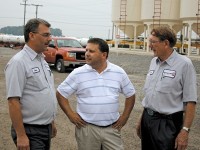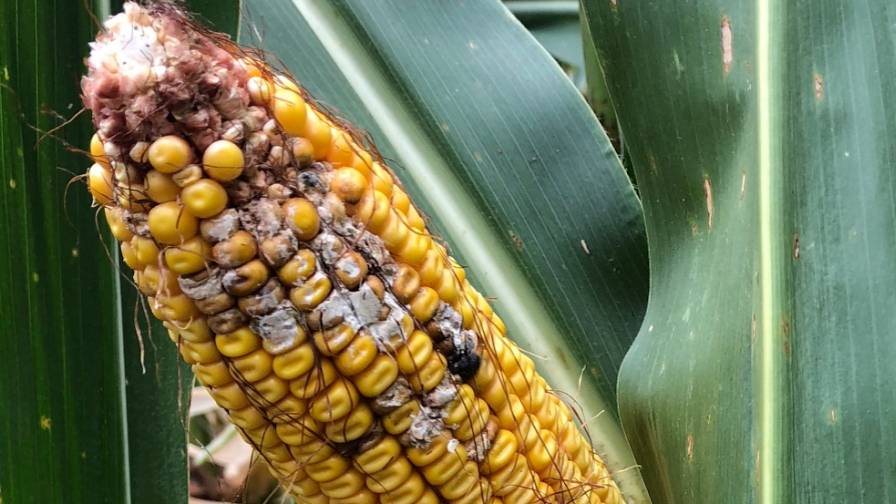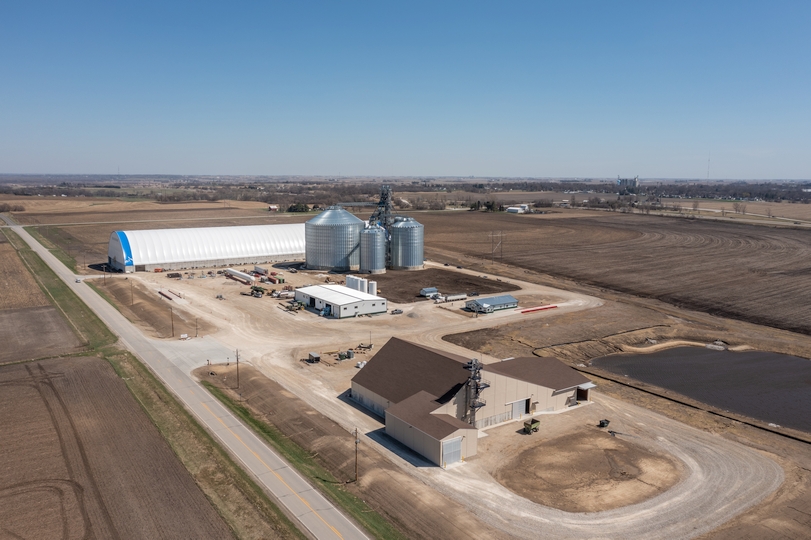Leading With Service
 The past two years have seen a dramatic increase of cooperative mergers in the Midwest, as once fierce competitors find benefit in merging to create larger organizations that are better able to weather volatile changes in prices and market conditions – and provide optimal customer service.
The past two years have seen a dramatic increase of cooperative mergers in the Midwest, as once fierce competitors find benefit in merging to create larger organizations that are better able to weather volatile changes in prices and market conditions – and provide optimal customer service.
Last year, Harvest Land Co-op Inc. and Ag One Co-op Inc., which together serve part or all of 21 counties in west central Ohio and east central Indiana, made the decision to join forces and do business under the Harvest Land brand. The benefit of additional resources has served the combined cooperative well, putting 400 employees and 60 facilities under one organization and delivering over $300 million in annual sales.
In particular, the cooperative’s agronomic services have blossomed as it has made improvements to its comprehensive YieldPro program. Harvest Land describes the program as “a partnered process that integrates agronomic expertise and technology by developing and implementing site-specific crop solutions that optimize yield and maximize profit. Or, as Otto Clausen, the Decatur, IN, branch sales specialist says more simply: “completely servicing the whole acre.”
Clausen and Branch Manager Jamie Cressman work out of the Decatur, IN, location, where they have worked to bring the YieldPro program to all the cooperative’s grower-customers. The roots of the program date back to combining two successful programs. Ag One started offering precision agriculture services back in 1985 when the Dunreith branch received its first Soilection machine. Harvest Land started offering comprehensive precision agriculture services in 1996.
Sampling And Seed
The YieldPro program has evolved over the years, and in particular over the past four seasons with the addition of an in field diagnostic component. Today, YieldPro is a complete consultation and service solution for grower clients who buy into the program, from seed selection, nutrient analysis and crop planning to in field diagnostics.
Growers can enroll acres into the program at any time during the season. But like the traditional site-specific agronomy program, the first step for the new customer is geo-referenced soil analysis. This serves as the basis for building a total acre cropping recommendation for the season ahead.
Like many successful full-service retailers, Harvest Land has increased its emphasis on seed sales in recent years. Its seed efforts have gotten a boost from the YieldPro program — seed sales have grown 50% from 2007 to 2008.
Seed placement is a critical aspect of Harvest Land’s comprehensive approach to crop management. Making the best seed recommendation takes into consideration the soil test values, the genetic backgrounds of the available hybrids and varieties, and the appropriate use of fertilizer and crop protection products.
Trait selection is important, but Clausen and Cressman assert that understanding the genetic basis for variety selections is just as critical. For example, with corn, they take into consideration the region where each hybrid was developed as a factor in the decision process.
On-farm trials are also factored into variety consideration in addition to the cooperative’s own test plots. The idea is to unearth the strengths and weaknesses of each seed hybrid or variety, place these factors up against field factors, and make the best seed placement. Then, using all the information about field and seed, Harvest Land sales specialists can make the best determination about the nutrient and crop protection recommendations, says Clausen.
Crop protection includes not only applied products, but seed treatment as well. The Decatur location features a state-of-the-art seed treatment facility with built in features that reduce seed damage and minimize weighing error.
Clausen says that Harvest Land thrives on having as much program flexibility as possible on all inputs, and has come to value seed and input programs that allow that flexibility. He points to the AgriEdge program from NK Seeds, which Harvest Land carries along with Croplan, Dekalb, Asgrow, and Mycogen, as a good example.
“We base our recommendations on field by field recommendations, so we need a certain amount of flexibility,” says Clausen. “AgriEdge give us that flexibility.”
As an integrated part of the YieldPro program, getting growers to lock in seed decisions has become more viable. By harvest, Clausen says that about 80% of the upcoming year’s seed orders are booked, and by Christmas, 90% of orders are committed.
Walking The Acres
In-season is where Yield-Pro really shines, when the focus is on putting people in the field as frequently as possible. The agronomy department brings college students on board to spend the summer looking at fields and generating reports for growers. Cressman and Clausen are also out walking fields during the summer — Cressman focuses on larger acre farms and key customers. “In 2008, we had 17 students scouting fields across our 25 ag locations,” says Cressman. The company plans to bring in more than 20 next year.
The field techs receive daily briefings from the Harvest Land agronomy team, and then hit the fields. Each field tech can cover from 400 to 500 acres per day. “You can only maximize yields by staying on top of things,” says Clausen.
An upgrade offering available to growers is CropWatch.






